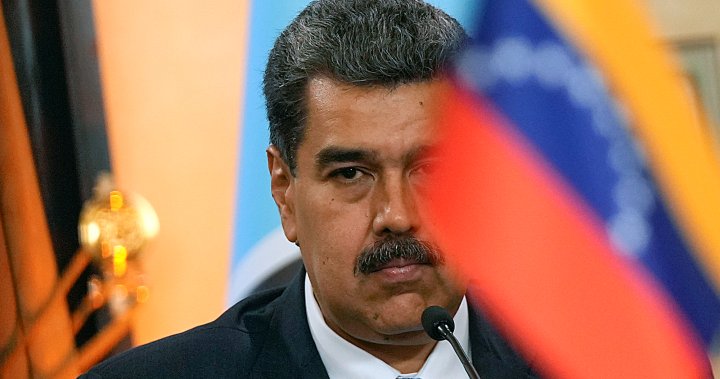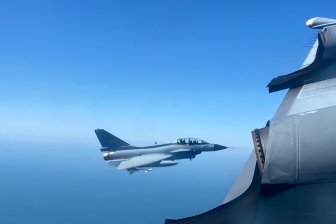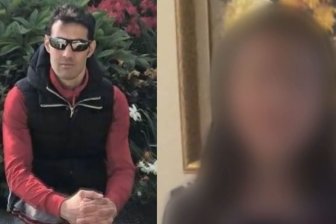Venezuela’s government and a faction of the opposition formally agreed Tuesday to work together to reach a series of basic conditions for the next presidential election, including scheduling the contest for the second half of 2024.
Their accord was part of a partial agreement that is expected to trigger some relief from economic sanctions imposed by the U.S. government on President Nicolas Maduro’s administration. It came just five days before the opposition holds a primary to pick its candidate for the 2024 presidential election.
The signing of the agreement demonstrated notable progress in a negotiation process marked by fits and starts over the past two years, but it also showed how far apart the two sides remain on what constitutes fair electoral conditions.
Two provisions of the agreement could affect the government’s tactic of banning some of its loudest critics from seeking office, including the frontrunner in Sunday’s presidential primary. Yet neither provision spells out a clear path for a candidate to overcome a ban.
The government’s representatives and the opposition’s delegates also agreed to “promote” with electoral authorities various measures to update the country’s voting rolls, including establishing voter registration centers and organizing registration campaigns.

Geoff Ramsey, a senior analyst on Venezuela at the Atlantic Council think tank, said Tuesday’s agreement “forces the regime to crack open a window,” but leaves up to the opposition “to pry that window all the way open” with the assistance of the international community.
Maduro’s government and the Unitary Platform, the faction of the opposition backed by the U.S., began the current negotiation process in 2021 in Mexico with the mediation of Norwegian diplomats. But the dialogue stalled at various points.
From the start, Maduro demanded that the U.S. drop economic sanctions and unfreeze Venezuelan funds held overseas. The opposition sought guarantees for the election to avoid conditions in previous votes that were widely considered to favor pro-government candidates.
The deals signed Tuesday will result in relief from U.S. energy sanctions on Maduro’s administration, according to a person familiar with the outline of deal. If Maduro doesn’t live up to his end of the bargain, the sanctions will be imposed again, according to the person, who insisted on not being quoted by name as a condition to discuss the agreement.
“I can say that these agreements will be very beneficial for peace,” Maduro said Monday during his weekly TV show. “They will be very beneficial for the upcoming elections because we will simply activate and reactivate the electoral guarantees provided by our constitution, our laws, our National Electoral Council.”
Election campaigns in Venezuela typically involve handouts of free food and other goods on behalf of the governing party’s candidates, who also get favorable state media coverage. The government also sidelines adversaries by banning them from public office, and not just in presidential contests.

One of the agreements signed Tuesday calls for allowing all candidates access to media outlets. But it left open to interpretation whether banned candidates can run for office.
A provision of the agreement states the parties will “recognize and respect the right of each political actor to select” a presidential candidate “freely and in accordance with their internal mechanisms” so long as they take follow the law and the constitution.
Another provision calls on both sides to “promote the authorization of all presidential candidates and political parties” to participate as long as they comply with the law.
After the signing ceremony in Barbados, Gerardo Blyde, who led the opposition’s negotiators, said the provisions include “a route” for affected candidates and political parties “to regain their rights quickly.”
Yet Jorge Rodriguez, Maduro’s top negotiator and head of Venezuela’s National Assembly, insisted no candidate subject to a ban, regardless of the government entity that issued it, can run for office.
“If you committed a crime and were sentenced for that crime, you cannot be a candidate,” Rodriguez said. “And if you received an administrative disqualification from the corresponding entity … then, you cannot be a candidate either.”
Maria Corina Machado, the favorite to win the opposition’s primary, received a ban just three days after she entered the race. It alleges fraud and tax violations and accuses her of seeking the economic sanctions the U.S. imposed on Venezuela.

Bans are also applied retroactively, such as in 2021 when an opposition gubernatorial candidate was disqualified after results showed he was ahead of a sibling of the late President Hugo Chavez.
“The opposition will have to come together around the winning candidate after the primary, but also be prepared for the likely possibility that the government will veto that candidate,” Ramsey said, adding that it better “be ready for a Plan B.”
The political, social and economic crisis that has come to define Venezuela began a decade ago as a result of a global drop in the price of oil, mismanagement by the self-proclaimed socialist administration and government repression of its opponents. A brief period of relative economic stability has again been shaken by jumping food prices, business closures and another wave of emigration.
The parties also agreed Tuesday to invite electoral observers from the European Union, United Nations, U.S.-based Carter Center and other organizations.
U.S., EU, Canada and U.K. officials in a joint statement said Tuesday’s agreement is a necessary step in the “restoration of democracy in Venezuela.” It also called “for the unconditional release of all those unjustly detained, the independence of the electoral process and judicial institutions, freedom of expression including for members of the press, and respect for human and political rights.”
When the sides last met publicly, in November, they agreed to create a U.N.-managed fund to finance health, food and education programs for the poor while the U.S. government agreed to allow oil giant Chevron to pump Venezuelan oil. But the fund, which was meant to hold billions in frozen assets, is yet to funnel money to programs.
Dag Nylander, a representative of the Norwegian government, said there is still a long way to go to overcome polarization and confrontation, but the latest step is the starting point toward establishing “clear rules of political and social coexistence in Venezuela.”
Associated Press writer Joshua Goodman in New York contributed to this report.



